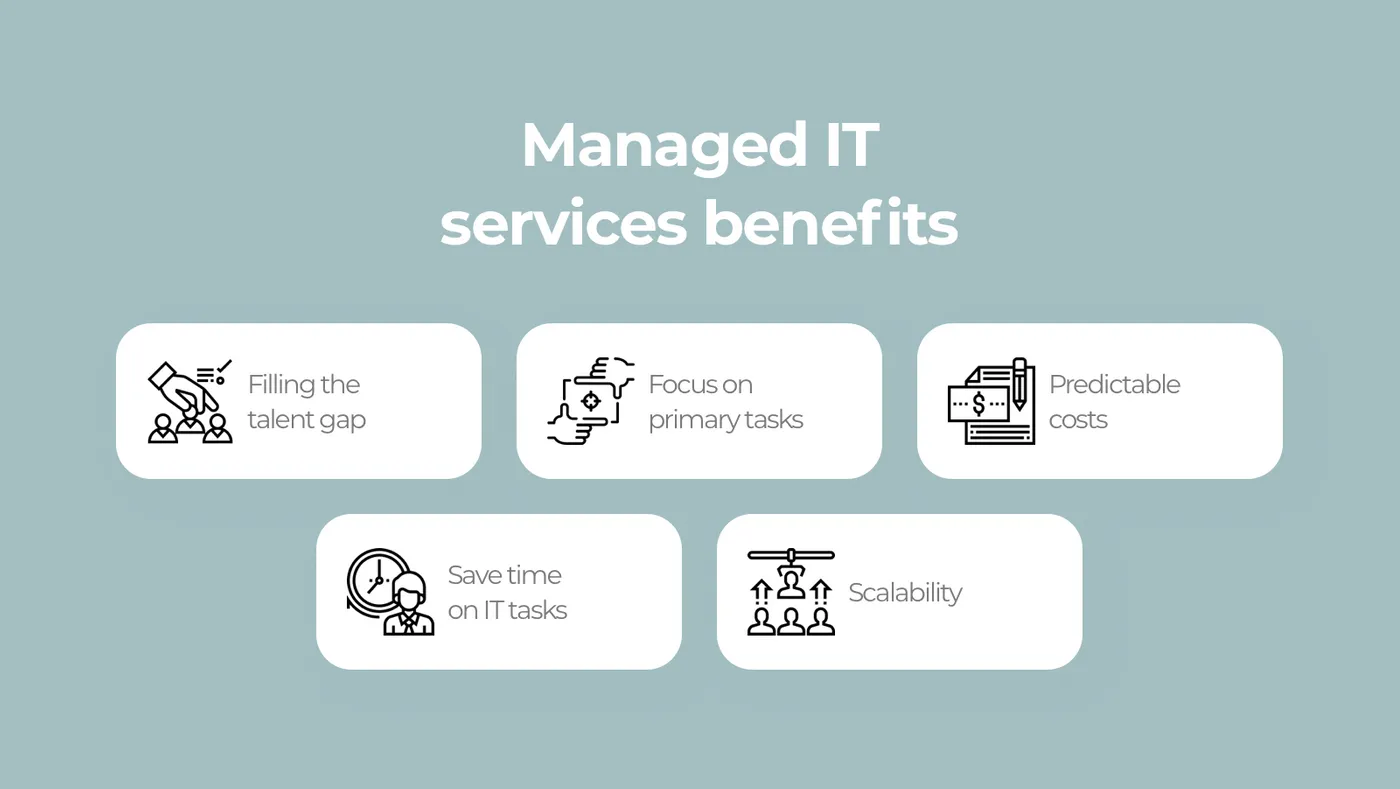This landscape of tech is progressing at an unmatched rate, and companies are gradually recognizing the essential importance of managed IT solutions in the change. As companies strive for greater productivity, creativity, and scalability, the dependence on cloud technology is growing more pronounced. This shift is not only changing the method IT services are provided but also reshaping what organizations can accomplish. With the power of cloud services, businesses can simplify processes, improve security, and utilize data-driven insights like never before.
As we look toward the future, managed IT services are poised to play a crucial role in guiding companies through the challenges of digital evolution. By delegating IT oversight to dedicated vendors, companies can concentrate on their main objectives while gaining from expert assistance and cutting-edge technology. The merging of cloud computing with managed services is expected to create a new era of adaptability and responsiveness, which makes it essential for businesses to adapt and embrace these advancements to remain competitive.
The Progression of IT Services
Managed IT services have experienced significant change over the past two 20 years, transitioning from traditional break-fix approaches to integrated, proactive solutions. In the early days, businesses counted significantly on internal IT teams to address issues as they arose, often leading to downtime and inefficiencies. As technology advanced, the need for more reliable and consistent IT support caused the rise of outsourced services, where third-party providers began to assume the responsibility for an organization's technology needs.
The launch of the cloud represented a key moment in the development of IT services. With the ability to store data and operate applications off-site, organizations could lessen their reliance on on-premises equipment and the associated maintenance costs. Managed IT service providers quickly adapted by offering cloud-powered solutions, allowing businesses to expand their IT resources more efficiently and focus on strategic initiatives rather than day-to-day operations.
Currently, we are seeing the rise of intelligent managed IT services that utilize advanced technologies like artificial intelligence and ML. These developments enable providers to offer predictive analytics, enhancing the capability to foresee issues before they arise. As organizations continue to embrace digital evolution, the future of IT management services will be shaped by flexibility, security, and a deep integration of technology into all facets of company operations.
Benefits of Cloud Integration
Cloud integration significantly enhances the flexibility and expandability of managed IT services. Businesses can easily adapt their IT infrastructure to meet shifting requirements, allowing for rapid response to market trends or internal growth. This means companies are no longer constrained by traditional infrastructure, enabling them to distribute resources more efficiently and optimize their operations.

Furthermore, is the financial efficiency associated with cloud integration. By moving to a cloud-based system, businesses can lower costs related to maintaining hardware and software updates. Managed IT service providers can offer pay-as-you-go pricing, allowing businesses to be charged for the resources they consume. This approach not only helps in financial planning but also enables businesses to allocate funds more in new technologies and long-term initiatives.
Ultimately, cloud integration enhances security and adherence for IT management services. Leading cloud services allocate resources heavily in advanced security protocols and updates that many businesses may struggle to implement on their own. This shared responsibility model allows companies to take advantage from advanced security solutions and support, helping them ensure adherence with regulatory requirements and safeguarding sensitive information in a rapidly evolving security environment.
Future Directions in Managed IT
As organizations continue to integrate digital transformation, IT management solutions are expected to develop significantly. managed IT services from Parried is the increased reliance on automation and machine learning. Service providers will leverage AI tools to boost productivity, shorten response times, and elevate the total client interaction. This shift towards automation will also streamline operations but also allow human resources to concentrate on high-level tasks rather than repetitive chores.
Another crucial trend is the increased emphasis on data protection within IT management. With the growth of cyber threats, organizations will require improved security measures from their IT vendors. Managed IT services will increasingly include advanced security protocols, continuous monitoring, and crisis management solutions as essential parts of their services. This transformation will help organizations safeguard their assets and sustain adherence to regulatory standards in an ever more complex tech space.
Finally, the hybrid cloud approach is poised to dominate the future of IT management solutions. Companies are realizing the advantages of combining on-premises infrastructure with cloud solutions for flexibility, scalability, and budget effectiveness. Managed IT providers will need to cultivate know-how in integrating hybrid systems, empowering organizations to customize their IT environments based on individual requirements. This combination of technologies will inspire innovation and enhance continuity plans, establishing IT services as essential partners for businesses operating in the tech-driven world.
